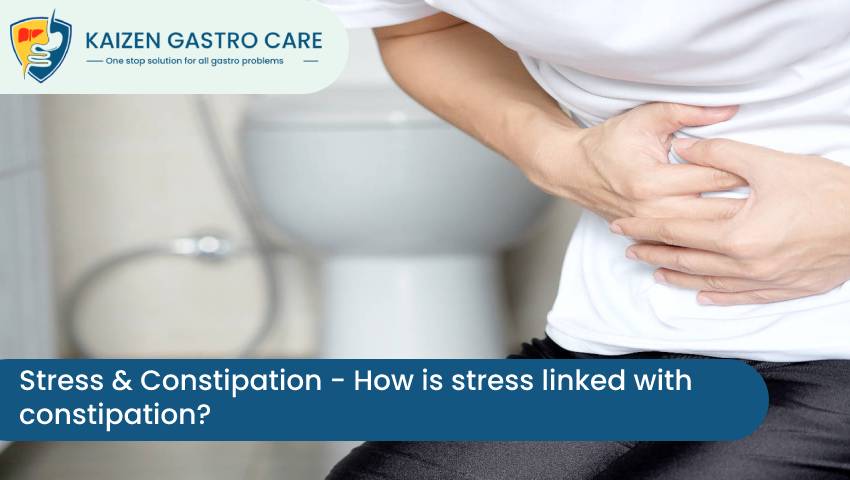
- 27/03/2023
- Kaizen Gastro Care
- 0 Comments
- Digestive Disorder
Stress & Constipation – How is stress linked with constipation?
Constipation is a common gastrointestinal problem that affects people of all ages. It is characterized by infrequent bowel movements and difficulty passing stool. While there are many factors that can cause constipation, stress is one of the most significant contributors. In this blog, we will discuss the link between stress and constipation and explore some strategies to manage stress-related constipation.
How stress affects digestion?
When we experience stress, our body releases stress hormones such as cortisol and adrenaline, which can have a negative impact on digestion. These hormones can cause the muscles in the digestive tract to contract, leading to cramps, bloating, and constipation. Stress can also disrupt the balance of gut bacteria, which can lead to inflammation and other digestive problems.
Moreover, stress can also affect our eating habits. Some people may overeat when stressed, while others may lose their appetite. Eating too much or too little can contribute to constipation.
Stress can also lead to a lack of physical activity, which can slow down bowel movements and contribute to constipation.
How to manage stress-related constipation?
Managing stress is key to preventing stress-related constipation. Here are some strategies that can help:
- Relaxation techniques: Practice relaxation techniques like deep breathing, meditation, and yoga to reduce stress and improve digestion.
- Exercise regularly: Regular exercise can help reduce stress, increase blood flow to the digestive tract, and improve bowel movements.
- Eat a healthy diet: Eating a diet rich in fiber, fruits, and vegetables can help prevent this condition. Also, avoid foods that are high in fat and sugar, which can exacerbate constipation.
- Stay hydrated: Drink plenty of water and other fluids to keep your digestive system healthy.
- Get enough sleep: Getting enough sleep is important for overall health and can also help reduce stress.
- Talk to a healthcare provider: If you are experiencing chronic constipation or if your constipation is not responding to home remedies, talk to your healthcare provider. They may recommend medications or other treatments to help manage your symptoms.
Conclusion:
Stress can have a significant impact on digestion and contribute to constipation. Managing stress through relaxation techniques, exercise, a healthy diet, and adequate sleep can help prevent and manage stress-related constipation. If you are experiencing chronic constipation or if your symptoms are not responding to home remedies, Consult with a Kaizen Gastro Care Expert gastroenterologist & Constipation Specialist in PCMC, Pune.
